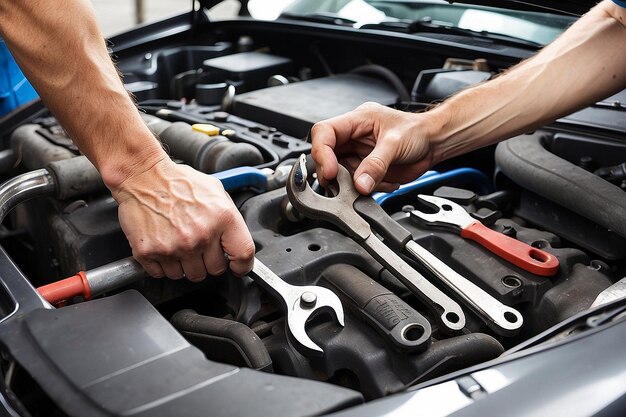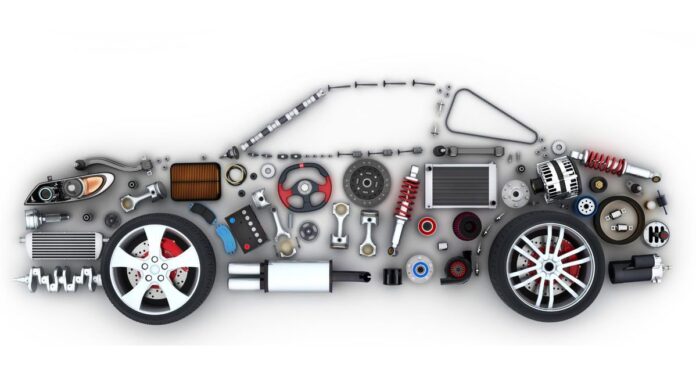Ever walked out of an auto shop feeling like you just handed over your wallet, your dignity, and maybe a kidney for good measure? You’re not alone. Auto repairs can feel like a game of roulette, and unless you’re in on the tricks of the trade, the odds are rarely in your favor. Let’s get into how you can shop smart and stop overpaying for car repairs.
Key Points
- Check if you’re overpaying for repairs by comparing prices.
- Buy used or refurbished car parts to save money.
- Local suppliers often offer cheaper alternatives than dealerships.
- Verify part quality and return policies before purchasing.
- Always ask for a second opinion on big repair bills.
Why Are Car Repairs So Expensive?

It all starts with the parts. Dealerships often charge a premium, convincing you that their products are the only safe option. But here’s the truth: many of the parts they sell are marked up beyond belief. For instance, a part that costs $100 to manufacture might be sold to you for $300 or more.
You’re paying for the brand name, not necessarily for better quality. Local suppliers like Rectangle Auto Supply can offer excellent alternatives without the dealership markup. Check their website for more information www.rectangleautosupply.com.
Should You Buy Used or New Parts?
Not every repair requires something straight out of the factory. Used parts can save you a ton of money. For example, a used car seat frame in good condition can work just as well as a new one for half the price.
But how do you decide?
- Go used for non-essential components. If it’s cosmetic or not directly tied to safety, a refurbished option might be your best bet.
- Stick to new for critical safety parts. Think brakes, airbags, and anything tied to keeping your vehicle roadworthy.
Are Online Suppliers Reliable?

Shopping online for car parts is convenient, but it comes with risks. You might end up with something that doesn’t fit or, worse, isn’t the quality you were promised.
How to shop smart online:
- Always check reviews and seller ratings.
- Look for clear return policies.
- Compare the part number with your vehicle manual.
Local suppliers often have an edge here. You can verify quality in person, and there’s no waiting for shipping.
Tips for Saving Money on Repairs
You don’t need a mechanic’s license to keep your costs down.
- Do your homework. Research part prices before agreeing to a repair.
- Ask for a breakdown. Demand to see a detailed bill listing part and labor costs.
- Find a second opinion. A different shop might quote you a better price.
- Consider aftermarket options. Many are just as good as the original but much cheaper.
Can You Negotiate Repair Costs?

Absolutely. Most shops expect a bit of haggling, especially if the repair bill is steep. Here’s how to negotiate like a pro:
- Be polite but firm.
- Mention that you’ve compared prices elsewhere.
- Ask if they can match or beat the price.
Even if they don’t lower the cost of labor, they might throw in a discount on parts.
What About Maintenance?
Skipping regular maintenance is a guaranteed way to overpay down the line. Small issues can snowball into big ones if ignored.
Focus on these areas:
- Rotate your tires regularly. It reduces wear and improves lifespan.
- Replace your oil and filters on schedule.
- Keep an eye on the rubber for signs of damage.
- Regular checkups might seem annoying, but they’ll save you hundreds in the long run.
FAQs
- Is it safe to use aftermarket parts for repairs?
Yes, but stick to reputable brands. Research the part to ensure it meets safety standards.
- How can I tell if a mechanic is overcharging me?
Request a detailed invoice and compare it with prices from other shops.
- What should I check when buying used parts?
Inspect for visible wear, ensure it matches your car model, and ask about warranties.
- Are refurbished parts worth it?
Yes, for non-critical repairs. They’re often cheaper and work just as well.
- How do I avoid unnecessary repairs?
Always ask questions and get a second opinion. A trustworthy mechanic will explain every charge.
Final Thoughts
Car repairs don’t have to cost you an arm and a leg. By shopping smart, comparing prices, and keeping up with maintenance, you can dodge hefty bills and keep your vehicle running smoothly. It’s all about knowing your options and not falling for the first price you hear.
So, the next time you’re quoted a sky-high repair bill, remember—you have the tools to shop smart and save big.











